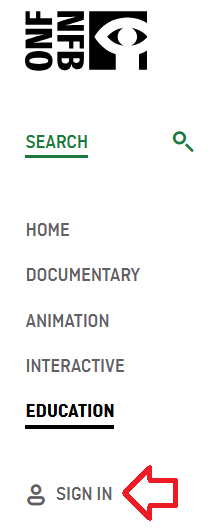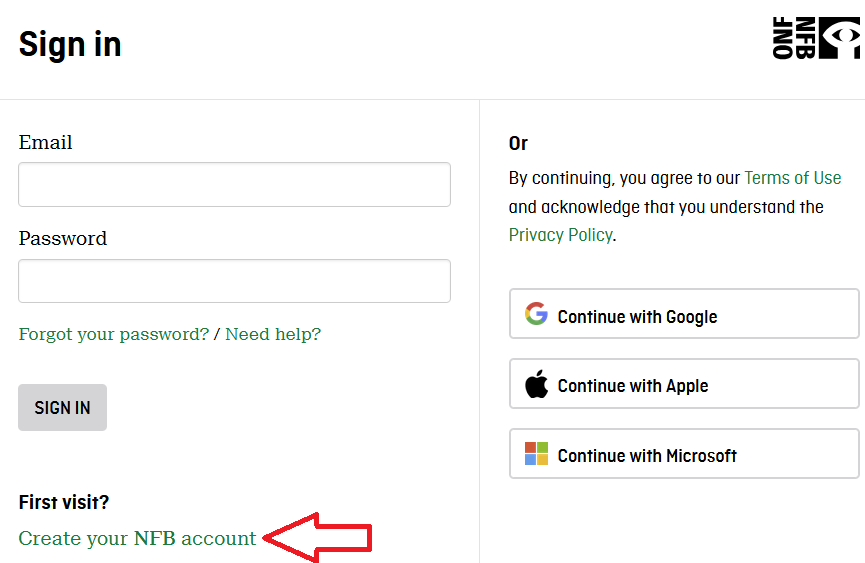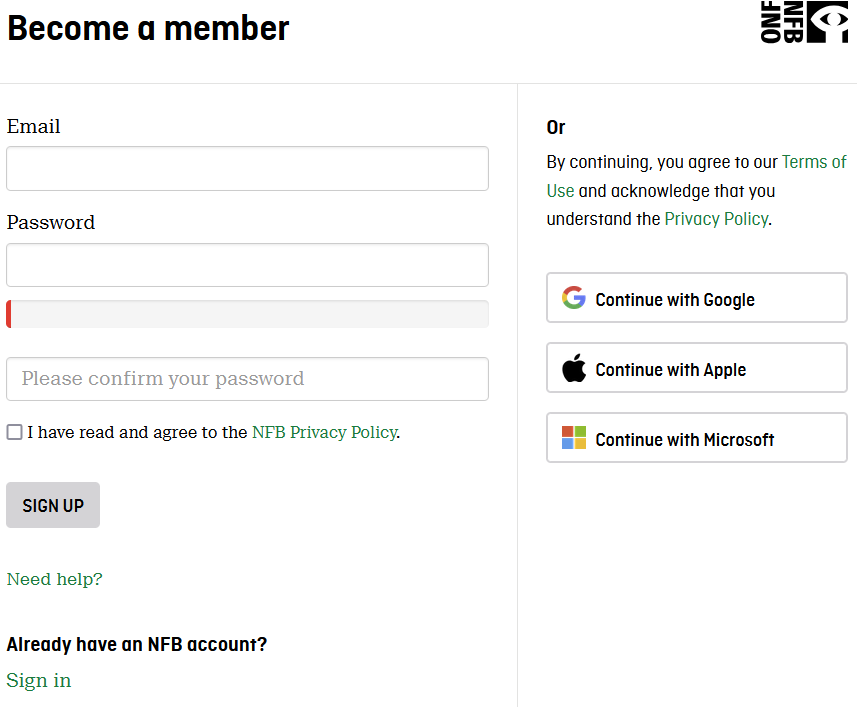National Film Board Education
The NFB Education (K- Grade 12) includes creative documentaries, animation, interactive stories, and participatory experiences. Their mission is to provide new perspectives on Canada and the world from Canadian points of view that serve Canadian and global audiences through an imaginative exploration of who we are and what we may be. The National Film Board website is accessed through Focused Education Resources and the BC Digital Classroom.
Focused Education Resources is a not-for-profit, shared services organization that supports excellence in K-12 education in British Columbia. It is a consortium of BC public school districts and independent schools that work together to create accessible learning resources for BC schools. Within Focused Education Resources is the BC Digital Classroom, which houses many of the subscriptions available to HCOS and Flex families.
Logging In
The Education Menu
There is no longer a username and password to enter the Education Menu.
The Media School
Media school is for teachers and students aged 13+. Logging in is required.
Step 2: Select "Sign In" from the left menu bar.
Step 3: Select "Create your NFB account."
Step 4: Set up your account.
- Create your password.
- Select the box "I have read and agree to the NFB Privacy Policy."
- Select "Sign up."
Navigation & Use
Select “Education” from the menu on the left of the page.
Select “More Resources” from the top menu bar. Then select “Professional Development” from the drop-down menu.
Digital Storytelling is an introductory workshop on media production. Students can navigate through videos and interactive activities related to the different stages of film production. They will acquire the tools to create digital stories and dynamic videos using accessible equipment (e.g., smartphones, software).
Ocean School is an environmental resource that aims to create a generation of ocean-literate citizens. A team of educators and scientists take learners on a global aquatic expedition that provides the knowledge and tools to produce innovative solutions to the world’s oceans' growing challenges.
Mini-Lessons are set up within school subjects and recommended age groups. They include an educational synopsis, overarching questions, activities, short films, historical context, and online resources.
Educational Playlists are selections of films on curricular themes which address the important issues of the day. Many of the playlists are also linked to the study guides.
NFB Study Guides are designed to facilitate the integration of films into student learning. Study guides are written by Canadian educators and are designed to be a starting point for creating personalized lesson plans.
Difficulties streaming a film?
Please update your browser if the player window does not appear on the film page. If you still cannot see the film player, please get in touch with Margaret Basaraba through LiveChat on school days from 9 am. to 3 pm. She will need to know your browser type and version, and if you are trying to watch our films on a school network or via a proxy server.
If you can see the player but can’t play the film you wish to view, please check whether you experience the same problem when viewing other films or the same film at a different resolution. The player window should automatically adapt the quality to your connection quality, but you can also choose your quality level. If you experience this problem with only one film, please contact Margaret Basaraba with the film's name and the resolution setting so the National Film Board team can investigate further. If you experience this problem with all films, please upgrade your browser and/or use a different internet browser (e.g., Safari, Firefox, Chrome).
If the film you are trying to watch starts and stops, try selecting a lower resolution for video playback. Using a wired connection instead of Wi-Fi and reducing the traffic on your network (e.g., downloading other files simultaneously) may also improve playback.



